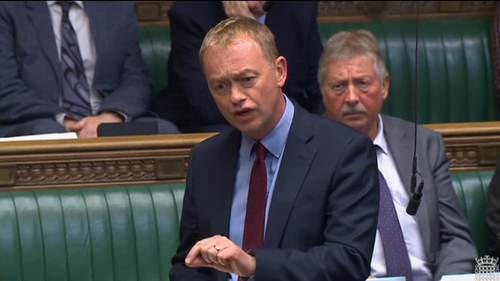MP takes Home Secretary to task over plans to make it more difficult to fill social care job vacancies in Cumbria

Cumbrian MP Tim Farron has challenged Home Secretary James Cleverly over why he has brought in rules which will make it harder to recruit care workers to Cumbria from overseas.
A report commissioned by Westmorland and Furness Council earlier this year found that a fifth (20.5%) of social worker and care roles in Cumbria are currently vacant, compared to the national average of 11.6%.
From last Thursday, the Government have increased the salary a worker from overseas has to be on in order for them to be able to bring a spouse or family member with them to the UK - from £18,600 to £29,000, with plans to further increase the minimum threshold to £38,700 next year.
Speaking during Home Office Oral Questions in Parliament this afternoon, Tim said: “The refusal to allow care workers from overseas to bring their spouse with them comes at the same time as in Cumbria we're finding it impossible to fill at least a fifth of all the social care jobs.
“Would he explain to constituents of mine who are incapable or unable to find those, people to care for them and their loved ones, why it seems sensible to make people from overseas’ lives so miserable in coming over here to care for our loved ones, that they don't come at all?
Responding, the Secretary of State for the Home Office James Cleverly said: “I recognise that in rural communities that recruitment and retention of staff is difficult.
“And in his constituency which is a wonderful, beautiful but very rural constituency, there are particular pressures.
“I can assure him the global supply of potential care workers is very, very significant and actually, the issues with regard to where in the country those people work are more about the internal dynamic within the UK economy than the quantum of people around the world who would seek to work in the UK.
“There are plenty of people who would wish to work here recognising that they are not allowed to bring their dependents with them but the issue of where in the country those people work is actually a broader issue.”
